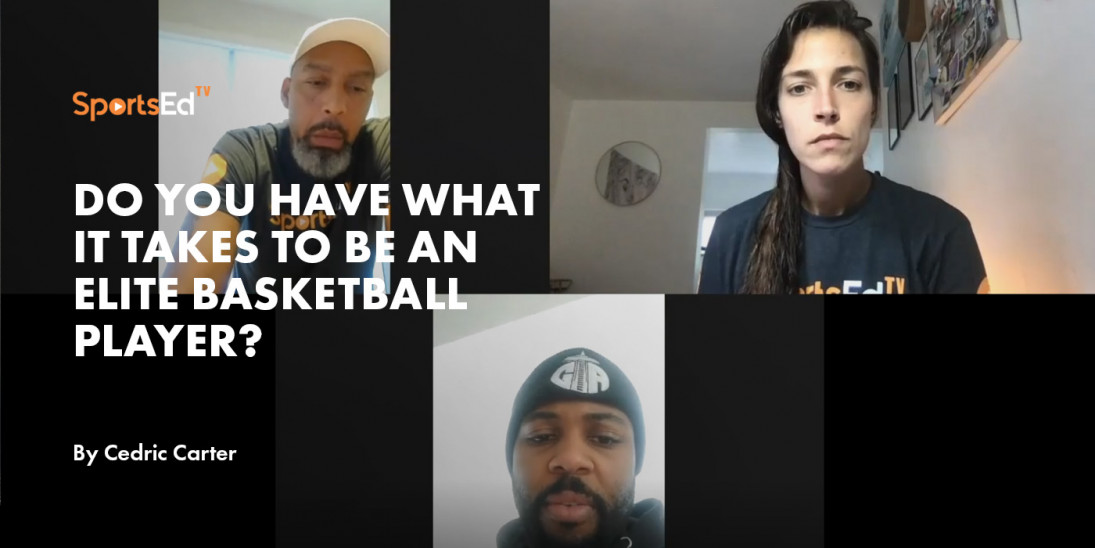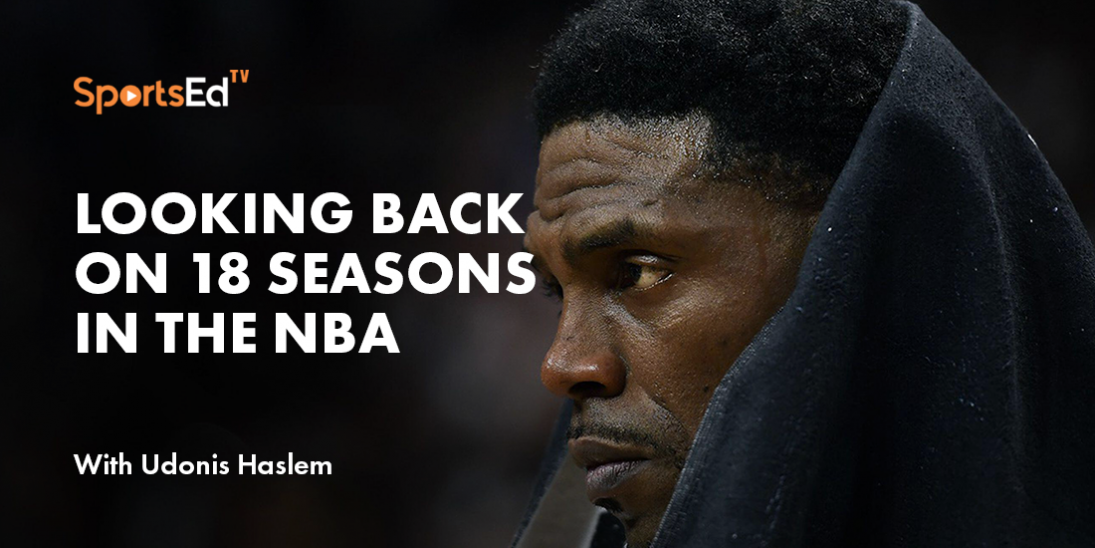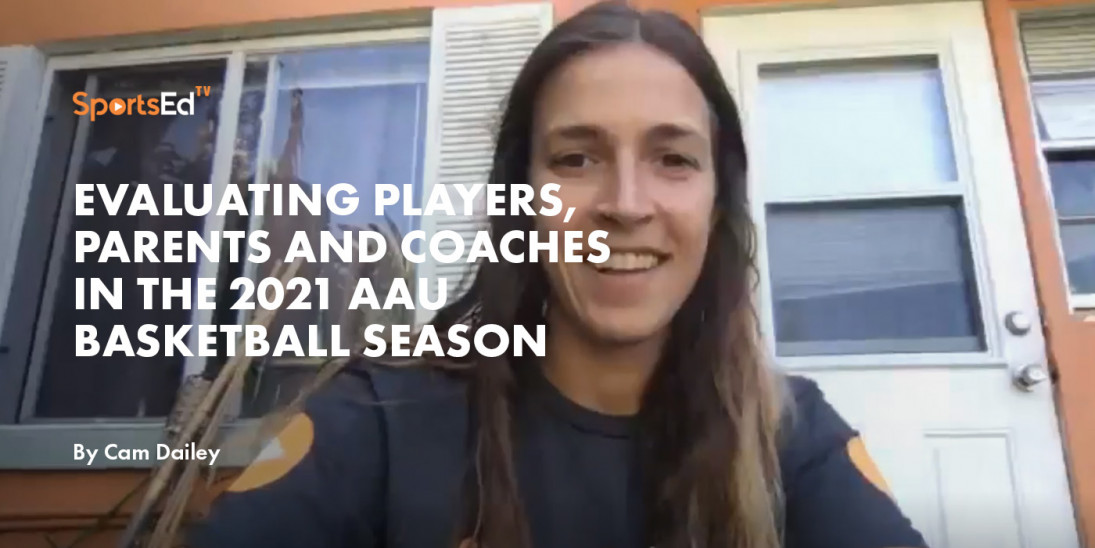Basketball
Welcome and thanks for visiting...

Basketball & The Books: Paving The Path For Academic Success
SportsEdTV Basketball is committed to bringing athletes, coaches, and parents pro-level basketball education videos for FREE. All levels, anywhere, anytime. Check out our full instructional library and sign up to join our basketball community!
In this discussion, SportsEdTV talks with high school teacher and grassroots basketball coach, Michael Shepherd, about how and when to pave the path for academic success with your student-athlete, specifically, your basketball player. We'll touch on habit implementation, timing, and what to look out for when assessing NCAA Clearinghouse rules.
SportsEdTV: When should parents and coaches should really start honing in on their children's grades in relation to NCAA eligibility?
Michael Shepherd: Well, you know, it's always possible. I mean, this should be a foundation set by coaches and especially grassroots coaches, you know, as far as knowing what the kids grades are while in middle school and setting that foundation. Once they get to high school, they have good study skills and good habits, that they're focused, and they know that ball and the grades and there's a correlation between that. The biggest thing I've seen is when coaches don't hold kids accountable for their grades at a younger age. When they're getting to the ninth grade, you know, I deal with it all the time, a lot of my ninth graders that I teach as a teacher bring that eighth grade or middle school mentality. It takes them a little bit a while to adjust the ninth grade.
SportsEdTV: Let's say you end up falling behind in your freshman year. How are you able to make your way back? How is everything weighted?
Michael Shepherd: You look at and say, well, we have 10 assignments. Well, you did five assignments. So first of all, we didn't do all of the work, we didn't quite get all your work in those five assignments. Those five assignments, you’re still looking at a 50 at that point.
So that's what I try to get my kids to understand, that when you get a zero on an assignment, that brings your grade down significantly. You have to be in a situation to be like, “hey, I have to do all my assignments.” And that's the one thing I've really structured. My basketball kids, of course, my students is to do every assignment because again, you don't know how different assignments might be weighted differently. And so one assignment might be weighted a lot higher than another.
If you're pulling away from that letter grade, the high letter grade, you can go to the teacher and be like, hey, can I do something? What can I do? And if you do that, then you're more apt to say, “hey, you know, I can help you out.”
SportsEdTV: How fickle have these letter grades been in regards to NCAA standards?
Micheal Shepherd: I have a ten point grading scale at my school. Other kids have maybe a seven point grading scale, where they're going from a ninety three to one hundred whereas in my school district we have a 90 to 100 is an A. You have to understand that.
But the NCAA, they don't care what grading scale you want. You have to have that understanding what your grade scale is at your school and act appropriately, you know, and again, you may end up getting a 90 and that is not an A at another school. You end up getting a B.
SportsEdTV: Mark, what was the process like for your son, Markhi, \ and what were some of the things that you kind of looked over as he went academically throughout his career?
Mark Strickland: I’ll use myself as an example. I was a late bloomerin high school, really. Back then I wasn't as big until I got to maybe 10th grade one, and by then you had to have a sort of GPA and all of that. So I was actually Prop 48 because I didn't pass S.A.T. and then once I got to Temple, that's when I started really hard. It was great because I just didn't want to be embarrassed about, you know, my mom getting at me, getting that call about your son's being academically ineligible. That’s so embarrassing. So, with Markhi, I kind of started with him early, early on - letting him know how serious grades are and how it can affect his future early. Once we got to middle school, it was no problem. He knew that if he came home with a D, he couldn’t hoop. So once I started setting those kind of boundaries for him early, he started taking school a little bit more seriously because he knew he wanted to play in the game. I wasn't that bad, I just didn't want him to go through the same experience I had my senior year.
SportsEdTV: What are some things that student-athletes can do to improve their standing throughout the year?
Michael Sheperd: I think communicating with the teachers and not only the students, but also the parents, communicating with the teachers and knowing exactly what has to be done.
There are platforms where they can see the grade and they can be involved in the assignment.
Nowadays, I put a grade in a computer and it will calculate their grades right there. Parents have that and I think it's very important for them to stay on that platform and understand what is going on week to week. Then they can say, “hey, look, why is this assignment not there and why do you not do it?”
SportsEdTV: What are some of the most common reasons that you see that get in the way of good grades?
Michael Shepherd: It's a variety of things, you know, sometimes it’s laziness, sometimes its maturity, especially at the ninth grade level when you're getting into high school. By the time you leave the 12th grade, if you have a kid thats just not into the books, or has academically declined, they're going to have to work a little bit harder. Maybe they don't want anyone to know it doesn't come natural for them, if that is the case, then they're just not going to try. Just like on the court, they get that correlation between not working on a skill and therefore, not getting better. Just like in the classroom, you have to work on that skill.




